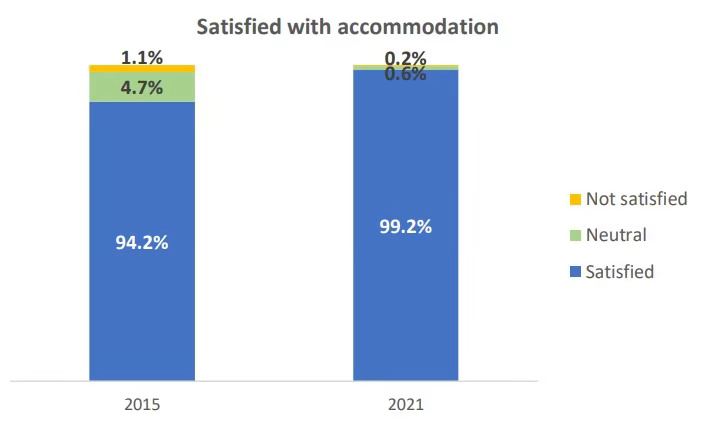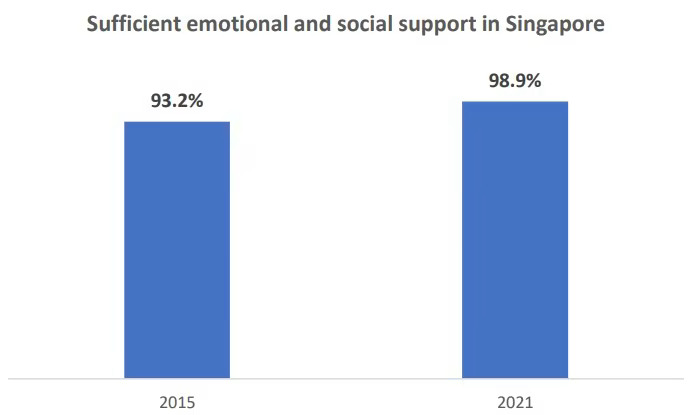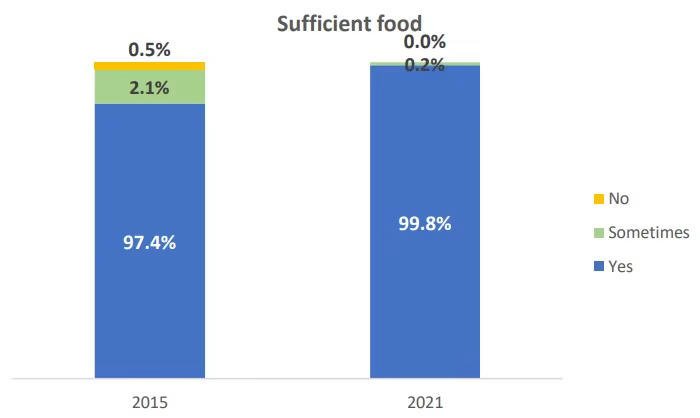SINGAPORE: The majority of maids and employers who took part in a survey last year were "satisfied with their employment relationships", according to findings released by the Ministry of Manpower (MOM) on Wednesday (Jun 8).
Overall satisfaction levels "continued to improve" from the previous studies done in 2015 and 2016, said MOM in a press release.
"The study, which is in its third run, aims to gain insight into the employment experiences of migrant domestic workers and migrant domestic workers' employers in Singapore, and their awareness of their employment rights and responsibilities," said MOM.
About 2,000 maids and employers were surveyed in the second half of 2021.
According to the survey findings, more than 99 per cent of maids were satisfied with working and living in Singapore, compared to the 97 per cent in 2015, the survey found.
The maids surveyed reported “high levels of satisfaction" across various areas of well-being, such as accommodation, emotional support, and sufficiency of food provided, said MOM.
More than 93 per cent of the maids had at least one rest day a month last year, a drop from the 98 per cent recorded in the previous study in 2015.
“The decline could have been due to the COVID-19 pandemic, where more migrant domestic workers may have preferred to stay home on their rest days to minimise infection,” said MOM.
About 94.2 per cent of maids said they were compensated if they did not take their rest days, a rise from the 63 per cent recorded in 2015's study.
About 99 per cent of maids surveyed indicated that they received their salaries on time, with more than 80 per cent expressing intentions to continue working in Singapore.
Among those who intended to continue working in Singapore, 93.8 per cent said they wished to continue working for the same employer when their current contract expires, an increase from 83.7 per cent in 2015.

(Graph: Ministry of Manpower)

(Graph: Ministry of Manpower)

(Graph: Ministry of Manpower)
EMPLOYERS
About 85 per cent of employers surveyed said they were satisfied with their current maids, a jump from the 75 per cent recorded in the study in 2016.
About 70 per cent of employers intend to renew their maids’ contracts upon expiry, up from 66 per cent in 2016.
Most employers hired their maids through employment agencies.
"Migrant domestic workers' employers also indicated they would like employment agencies to offer better replacement and refund policies, better matching and training of migrant domestic workers and shorter hiring duration," said MOM.
The ministry added that the level of awareness by maids and their employers of their rights and responsibilities “remained high”.
"This included the awareness of migrant domestic workers' basic rights and their employers’ obligations, such as the requirement that migrant domestic workers’ medical fees be borne by the employer and that migrant domestic workers are not allowed to work for multiple employers at any given time," said MOM.
Minister of State for Manpower Gan Siow Huang said: “The Ministry of Manpower has strengthened measures over the years to better support our migrant domestic workers and their employers, and we will certainly keep doing more.
"These include the implementation of mandatory post-placement checks by employment agencies, service fee refund policy to nudge employment agencies to take greater ownership of matching outcomes, and the introduction of a mandatory monthly rest day for migrant domestic workers which cannot be compensated away by the end of this year."
She added that the ministry is "exploring ways to expand our touchpoints" and connect better with maids and their employers, such as using new digital platforms.
“The Centre for Domestic Employees (CDE) is heartened that the study positively reflects migrant domestic workers' satisfaction towards working in Singapore, and that employers are treating them fairly and with respect,” said the centre’s chairman Yeo Guat Kwang.
“CDE will continue to work with MOM and our stakeholders to better care for our migrant domestic workers’ well-being and help strengthen harmonious relationships between migrant domestic workers and their employers."
